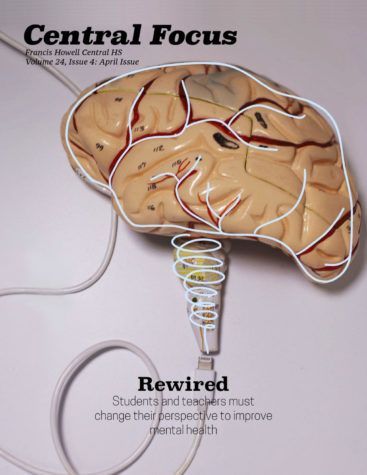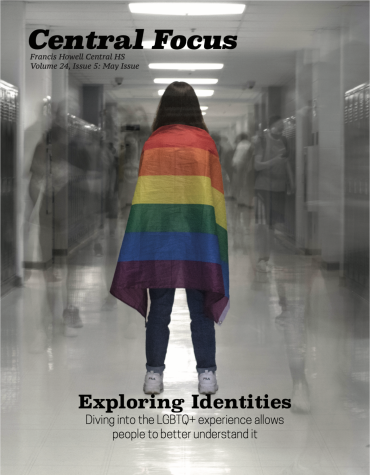Ignition: lighting the mental flame
Gaslighters seek to take control of others’ thoughts
Illustration by Ruthann Kimbrel
Up in Flames: A match both words that gaslights use on their victims light the brain non fire causing mental fogginess and confusion. Gaslighting is common enough for research and studies on it but, not commonly talked about leading to depression and other harmful side affects of this type of emotional abuse.
A girl and her boyfriend of a year are sitting on the couch in his basement, hands being held and small talk being shared between the two while watching food competition shows on Netflix. Out of the blue, like everything from his mouth, he brings up the topic of how he wants to take their relationship to the next level without explicitly saying it. The girl contemplating her own self-value, wonders why he would not listen to her saying she wasn’t ready yet or her pleads to stop talking about it since she became quickly uncomfortable as he seemed to gain power over her very being. She wonders why she was not placed upon the pedestal of value and respect like she used to when they had first started dating. Weeks later, he left her, to deal with her trauma by herself as he seemingly got away with no consequences. Only months later, she realised he had been gaslighting her.
Therapist Jason Kirkpatrick from Midwest Research Group provides a definition of what gaslighting is.
“[Gaslighting is] manipulating someone by psychological means into questioning their own sanity.”
Gaslighting can happen to anyone of any age and of any gender however, statistics show that there is a specific group of people who tend to use gaslighting more often.
“The majority of the time it’s men at a ratio of 2:1,” said Mr. Kirkpatrick. “It is believed girls are raised in a more selfless, caring manner than boys and adults are ‘better’ at it than teens because there has been more practice time to learn what works and [what] doesn’t work.”
Gaslighters have certain traits that can be identified as possible red flags and the person getting gaslit can have emotions that are red flags to possible gaslighting.
“[They] often exhibit what many refer to as an authoritarian personality. People with this type of personality typically see no faults in themselves but find it very easy to point out the faults or shortcomings of others,” said Mr. Kirkpatrick.
“A victim of gaslighting might believe they don’t have their own ability to create their own rules and that someone else has that level of control over them. To experience gaslighting at this stage of development can cause a lifetime of difficulty knowing what they have control over and how confident they are about it.”
Victims can be gaslit anywhere they and the gaslighter may be in close proximity.
“[It] depends on where the ‘gaslighter’ and the other person interact the most. Could be at school or a job,” said Mr. Kirkpatrick. “[Also] there is a very good chance that texting and social media are utilized to increase control and level of exposure.”
FHC Emotional Support Counsellor Mrs. Shannon Harting shared an mnemonic device as an example of what to do or what should be done when you or someone else decides to come out with their gaslighting story.
“Take a moment where you are calm to evaluate what you know to be true about yourself and your situation. Talk over the situation with a trusted adult who can help you decide how to address the person that you feel is gaslighting you,” said Mrs. Harting.
Mrs. Harting suggests you use the D.E.A.R acronym to tackle the problem
She also supplies advice for what you should do when someone confronts you for help.
“You can be a calm listener to the situation, but you cannot solve the problem for someone else,” said Mrs. Harting. “Provide validation of the person’s thoughts and feelings. Let them tell their story and then support the person in developing a plan for how they want to address the person they feel is gaslighting them.”
Your donation will support the student journalists of Francis Howell Central High School. Your contribution will allow us to purchase equipment and cover our annual website hosting costs. FHCToday.com and our subsequent publications are dedicated to the students by the students. We hope you consider donating to allow us to continue our mission of a connected and well-informed student body.













